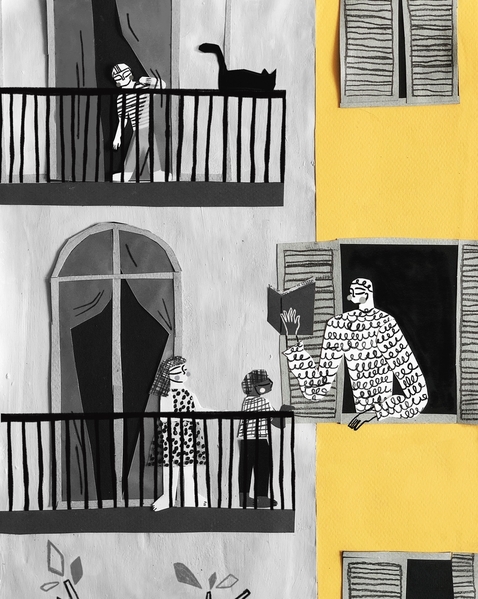The news reminds us ceaselessly of our divisions, like the weekend killing of Daunte Wright by a police officer during a traffic stop in Minnesota. We search for blame and justice. We wonder if society will ever change. Here are thoughts I shared in Weave’s newsletter about how we might change.
It’s rare in today’s world to feel we are truly all in this together, that we share something in common with every person around us. It can happen for a city during a bad storm or when the home team wins the World Series or the Super Bowl. It happened for our nation after 9/11. It has happened during the last year for the world as Covid spread fear and restrictions.
When we share something hard or joyous, we see our common humanity in each other’s faces. Our hearts open. Our differences - in skin tone, age or background - add rich colors that intensify, rather than diminish our shared experience. Young people do shopping runs for older people, office workers show gratitude for frontline workers, people of all races make masks, give money, cook food, and help others find vaccine appointments. Not everyone, but many show up.
That widespread sense of unity, of community, doesn’t have to fade as we emerge from more than a year of pandemic life. Yet we must work to hold onto it. The distractions of day-to-day life in our hyper-individualistic culture will urge us again to watch out for ourselves, get ahead of others, buy our way to happiness, and view differences as wide gulfs rather than as rich gifts.
The pandemic forced us to change our lives. Now, we will have to choose to hold onto the changes that opened us up. The first choice is the most obvious to state and the hardest to keep alive. See others fully. It’s not about being outgoing. It’s about leaning into our differences with curiosity and wanting to know each other in all our complexity.
Instead of focusing on our needs and to-do’s, we need to keep taking time to see people for who they are. See what they bring to the world, not what they lack. Keep checking in on folks, even strangers. Keep listening intently for the answer when we ask, “how are you doing?”
The second change from the pandemic is that we had to simplify our lives. Without the distractions of going out, we learned to lean into things that matter - deepening relationships, taking care of others, getting rest, speaking out for justice and equity, noticing the tiny changes in nature, gardening, reading, thinking, playing music, learning a language, celebrating for no reason, listening to understand others…
The third big change is that we recognized our interdependence. The pandemic showed us we live in a world we can’t control, a world where many of us have never felt any control and actions reverberate across many lives. Will we choose to remember our interdependence, especially when things are going well for us, and strive to strengthen the world for ourselves and others?
If we don’t vaccinate people in poorer nations, our health is at risk from new variants of Covid. If we don’t end racial and economic inequity, our social fabric will tear further and our democracy is at risk. If we don’t reduce climate change, we will face more hurricanes, wildfires, floods, droughts, extinctions and displaced people. We can’t clean just our end of the swimming pool.
In the midst of our pandemic-driven fear and physical distancing, instead of closing, many of us opened. We started seeing and trusting each other a bit more. We felt in new ways the meaning of relationship. We lived more than ever in community. As pandemic life fades and we cautiously abandon the restrictions, we must choose whether to hold onto the lessons… and the changes that opened us up to each other.
Illustrations: "Balcony Concerts" by Catherin Cordasco and "The Kind Neighbor" by Fernando Cobelo on Unsplash

Comments (0)